24 hour live Worldwide Robotic Surgery Event February 16th – 17th 2015
On the 16-17th February 2015 ten leading robotic centers of excellence from 4 continents will broadcast for 24 continuous hours. All the surgeons operating are experienced live surgeons, pioneers in their fields, who have contributed to the development and advancement of excellence in robotic surgery techniques.
Register now at www.wrse24.org
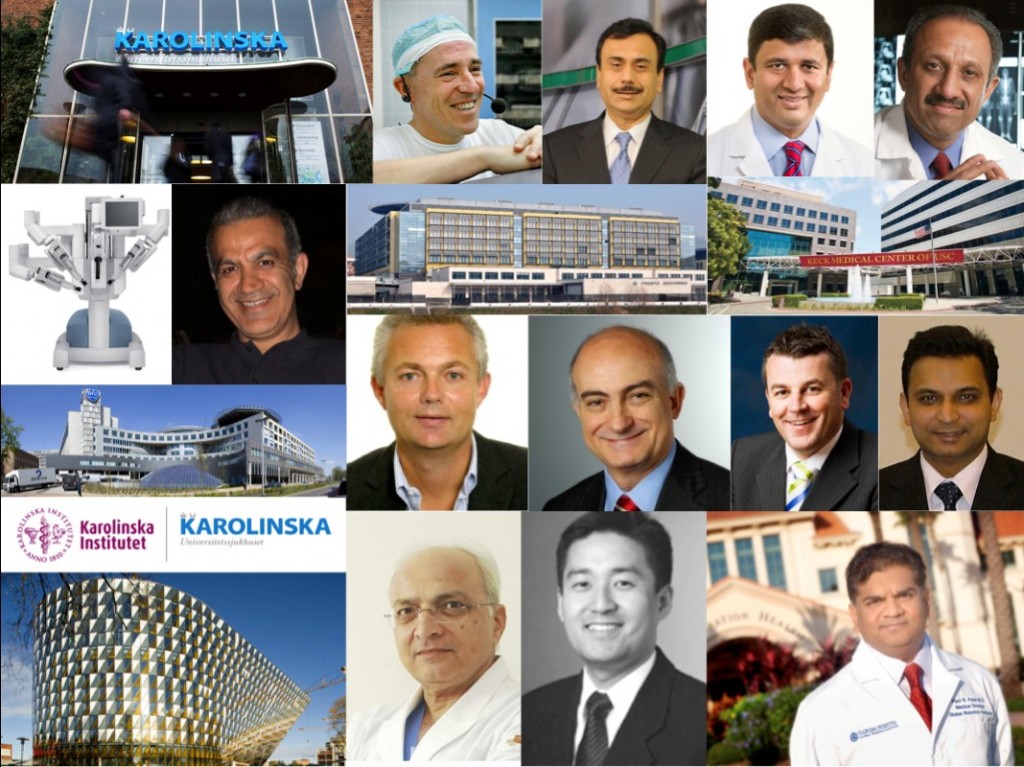 |
| WRSE24 incorporating 10 world leading robotic centres. |
“Imagination is more important than knowledge. For knowledge is limited to all we now know and understand, while imagination embraces the entire world, and all there ever will be to know and understand.
We live in exciting and progressive times in healthcare, when technological advancements are rapidly changing the way we work and the way we learn as surgeons. Many of these technological advancements come from discoveries and innovations made outside healthcare, making the pace of change less predictable. For example, it is well known that the advancement of robotic surgery technology came from initial innovative developments made within NASA and further funded and developed by the US military [ref 1].
With the advent of minimally invasive surgery utilizing video technologies, opportunities for surgical learning greatly improved. No longer was surgical training a master-apprentice role, performed behind ‘closed doors’ with the associated limited opportunities to disseminate expertise. Video recording of surgery enabled wider dissemination of knowledge and live surgical video transmissions have revolutionized the way that national and international surgical conference meetings are now run.
Following the recently published ‘‘EAU Policy on Live Surgery Events’’, it is now assured that live surgery will be ongoing at conferences in the immediate future. However, the panel reached >80% consensus on the view that performing at a home institution may be safer. The committee also identified issues with a ‘‘travelling surgeon’’ performing complex surgery in an unfamiliar environment with a surgical team that is not experienced with the intricacies of the surgeon’s technique. LSE’s from a home institution remove or minimize these negative aspects [Declan Murphy]. Furthermore, there are other important reasons why LSE’s are enhanced when performed at a high- volume home institution. The potential to optimise surgical performance comes from working with an experienced team. Consistency is a key measure of quality, and robotic surgery in particular epitomises teamwork. An established theatre team will move purposefully through the standardised steps with well-rehearsed, orchestrated movements. It is therefore likely that the natural evolution of LSE’s, is that a greater proportion are broadcast from home institutions [Collins et al].
We aim to highlight the benefits of this approach to surgical training with a worldwide team who will represent the best of current standardized surgical technique. All the surgeons operating are experienced live surgeons, pioneers in their fields, who have contributed to the development and advancement of excellence in robotic techniques.
We will be coordinating the broadcasts using LiveArena hardware and infrastructure. LiveArena are currently, primarily a sports broadcaster and in partnership with Microsoft have developed, cutting edge video streaming technology that enables streaming of HD video onto the internet, whilst requiring minimal capacity (3Mb/sec). The videos can be watched in real-time and also paused or rewound via their link and the video can be viewed on laptops, PC’s, smart phones and tablets even on standard hospital wifi, making this approach very accessible and scalable.
Communication with surgeons in real-time:
There will be a blog set up on the WRSE24 website, that any doctor registered can ask questions or highlight a topic for discussion. Questions can also be posted via this BJUI blog or via Twitter #WRSE24. During the 24 hour transmission Karolinska will monitor these aspects, combining the discussions and providing regular feedback via a 24 hour ‘overview’ broadcast on a separate channel.
To see more details and to register now for this historic event go to www.wrse24.org
Registration is currently free and urologists who register before the 12th January will be entered into a prize draw for 5 donated robotic courses (3 ERUS 2015 courses in Barcelona, one at USC Keck Medical Center in Los Angeles and one at Peter MacCallum Cancer Centre, Melbourne)
World Live Robotic Surgery 2015 SBS News
Justin Collins is a Urologist at Karolinska University Hospital. @4urology

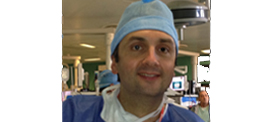


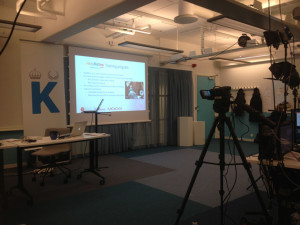
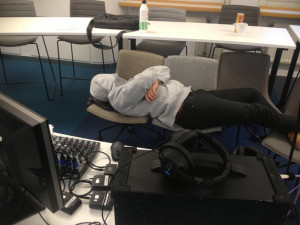
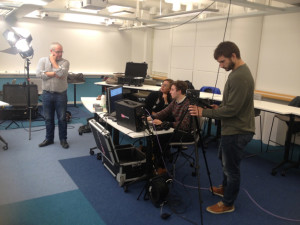
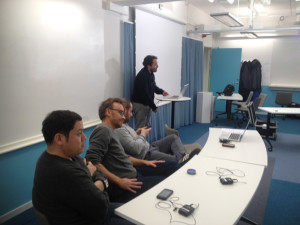
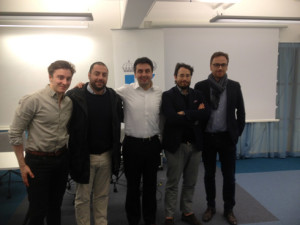


This time next week we will announce the first winner of the free robotic courses available on this blog.
Sign up now, if you haven’t already, for what we believe and registration numbers are pointing to, will be the largest ever online live surgery event.
For free registration go to
http://www.wrse24.org
Congratulations to Dr Emma Fishleigh who is a urologist in training at The City Hospital Birmingham. She is the winner of our first ERUS 2015 robotic course. We will have weekly announcements for the next 4 lucky winners of the 5 free robotic courses on offer. There will also be a prize for the best question asked to the surgeons performing at WRSE24. This will be judged on the day by our expert panel and the prize will be a robotic surgery textbook authored and signed by Dr Vip Patel. Questions can be submitted here on this blog or via Twitter #wrse24
Congratulations to Dr Evert Barton who is a urologist at Antonius Ziekenhuis Hospital, in Sneek in the Netherlands. He is the winner of our second ERUS 2015 robotic course. We will have weekly announcements for the next 3 lucky winners of the 5 free robotic courses on offer.
For further updates on WRSE24 and to see the latest agenda for presentations and surgeries go to http://www.wrse24.org
I would like to know in their daily clinical practice on what basis these experts approach a partial nephrectomy with or without clamping: what does – which features of patient and tumor – in matter and in what extent?
What do the experts think are the best candidates for a full, bilateral nerve sparing radical prostatectomy given these pts might now be put on active surveillance? I n my own practice, I hardly ever do such aggressive nerve sparing any more for this reason.
Congratulations to Dr Matthew Brown who is a urologist at The Fiona Stanley Hospital, in Perth in Australia. He is the winner of our third robotic course prize, which will be held at the Peter MacCallum Cancer Centre in Melbourne.
With just 3 weeks to go, register now for FREE at http://www.wrse24.org
I’d like to ask about node dissection in prostatectomy, the pros & cons of nodes before vs after prostate removal.
Congratulations to Dr Dag Halvorsen from St.Olavs Hospital in Norway. He is the 4th winner of our free robotic course and wins an ERUS robotic course of his choice at ERUS 2015.
Congratulations to the organising team of the WRSE. The BJUI is proud to host this blog and it’s associated video. Here are a few answers-
1. Most of my patients also have locally advanced disease so it is not possible to perform an aggressive bilateral nerve spare. RARP is above all a cancer operation first and foremost.
2. Occasionally despite being told about active surveillance, patients can’t mentally accept living with a cancer, however small and demand a RARP. They have to be well counselled and template biopsies mentioned if there is any suspicion of under sampling. The psychological aspects of this and other cancers will become more prominent as survivorship programs evolve in coming years.
3. I decide on lymph node dissection based on the revised Partin Tables.
Hi Jim – I perform a lymph node dissection if necessary after the prostatectomy. Gives me a bit more space but can equally be done first. I use a “below up” method, starting from the ureter and moving upwards. It is an extended dissection and includes the internal iliac chain. Fluorescent markers are being used to guide sentinel dissection but are not for prime time yet. The morbidity can include damage to neighbouring structures, lymph leak and lymphocoele.
In bladder cancer, the dissection is even more extended and one has to be careful not to damage the neural structures higher up in the pelvis while performing this.
@prokarurol Great job today , wonderful performance and thank you again for participating .
#WRSE24
Great Job, also really nice to see the dual console used in a live surgery demonstration.